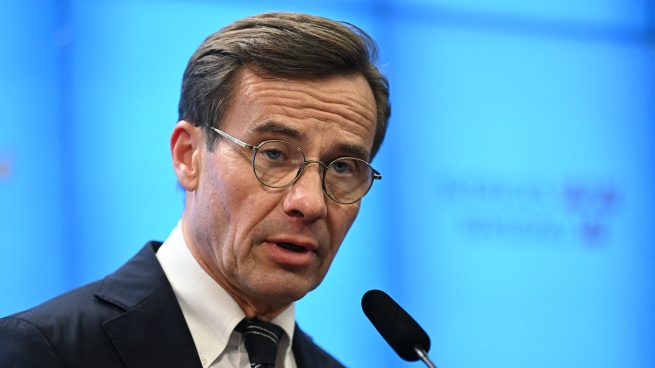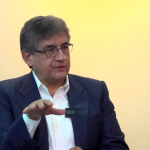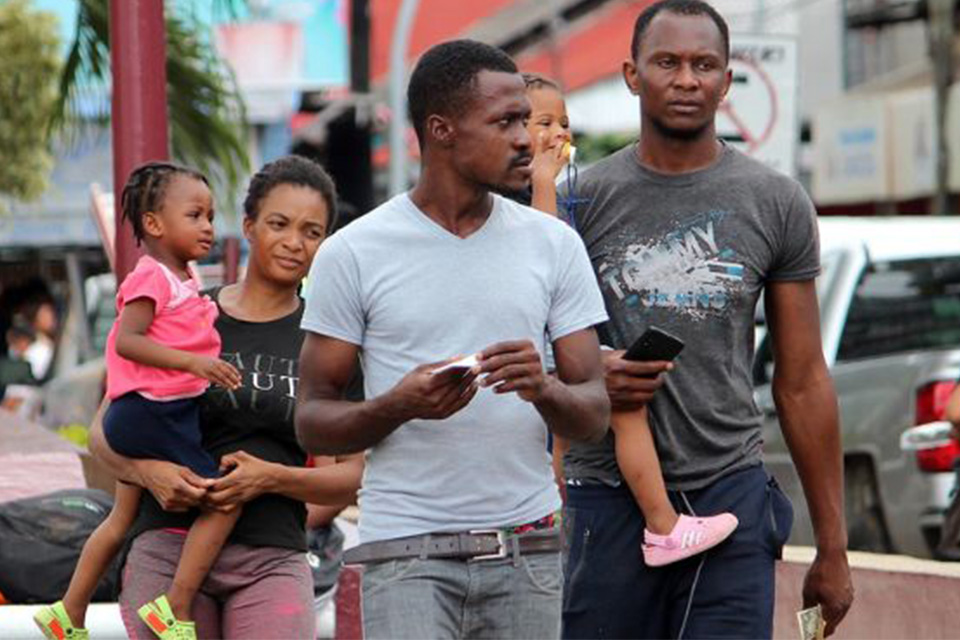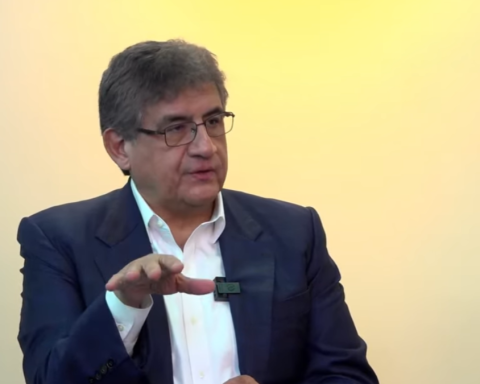Swedish conservative leader Ulf Kristersson was elected Prime Minister of the country on Monday, in a vote in Parliament in which he had the unprecedented support of the extreme right of the Sweden Democrats, which inaugurated a new political era for the Scandinavian nation. .
Kristersson was elected by 176 votes in favor and 173 againstafter announcing on Friday an agreement for a tripartite government, made up of its formation -the Moderates-, the Christian-Democrats and the Liberals, supported in Parliament by the far-right Sweden Democrats (DS).
The latter, who will not form part of the Executive despite being the second parliamentary force with 73 seats out of 349is a radical right-wing party, anti-immigration and staunchly opposed to the presence of Muslims in Europe.
The political agreement to add DS involved establishing a platform that includes tax cuts, cap benefits, tougher immigration policies and giving the police more powers.
The four parties presented a 62-page joint roadmap on their future cooperationin which the axes stand out as the relentless fight against crime and immigration, as well as the construction of new nuclear reactors.
The parliamentary elections of September 11, in which the conservative bloc achieved a tight majority, were marked by the advance of the DS, a party with neo-Nazi roots created in 1988 and currently the second most voted party, with 20.5% of the votes.
In total, the four right-wing parties hold 176 of the 349 seats in Parliament.
Kristersson, who will take the reins of a country in the midst of a recession, with food and electricity prices skyrocketing, will read his government statement before Parliament tomorrow and then present his cabinet, which will formally assume power during a council of State, presided over by King Carl XVI Gustaf.
The new premier, a graduate in Economic Sciences, based his election campaign on the slogan “Restore Order in Sweden”.
“Change is not only necessary, but also possible,” he said today during the debate prior to the vote Tobias Billstromleader of the conservative parliamentary group, who insisted that Sweden needed a prime minister who would “unite and not divide”.
For his part, the leader of the DS, Jimmie Åkesson, said that although his party would have preferred to be part of the Government and hold ministerial positions, the policies of the new executive were more important. “The important thing is what the government does”not how it is composed, he assured.
The new government, due to be announced tomorrow, foresees dramatic cuts in Sweden’s refugee reception policy, reducing the quota of 6,400 claimants asylum last year to just 900 a year during the four years of the mandate.
His policies will be subject to the support of DS, in a country that for decades was considered synonymous with liberal values and openness.
Until 2018, the entire political arc rejected agreements with the extreme right, however, the message that the growing crime rate in the country is directly linked to “too generous” immigration policies, went deep among voters and marked the agenda of the current government .
Although in the last decade successive governments tightened immigration regulationsthe new coalition promises to go even further in this field.
Asylum status will be temporary and it will be more difficult for new immigrants to obtain benefits, plus there will be a review of incentives for voluntary repatriation “with a particular focus on those who have not integrated.”
The police, meanwhile, will have the green light to take tougher measures against criminal gangs and sentences for gang crimes will be longer, within the framework of a security policy that also provides for authorizing the frisking of people in certain “sensitive neighborhoods” even if there is no suspicious behavior, harsher penalties for repeat offenders and anonymous testimonies in court.
Although the electoral coalition quartet presented itself as a united front, there are divisions on key policies and significant concessions had to be made to reach an agreement, especially to satisfy the extreme right.
Kristersson warned that it will take time to transform Sweden and it will be “difficult”, but he assured that he will do “everything possible” to reverse the current situation, although he did not “dare” to speak of deadlines.
The great challenge of the new executive was to reconcile the contradictory expectations of the small liberal party, whose red line was the entry of the extreme right in the Government and the demands of the DS, which demanded ministerial posts. Even outside the cabinet, as it was finallyÅkesson celebrated his “absolutely decisive role” in the government majority.
The great influence of the DS in the program announced on Friday has already caused tensions within the Liberals, Kristersson’s essential supporter. Faced with this scenario of fragility of the new majority, the left, now in opposition, does not give up hope of returning to power before the new elections scheduled for 2026.


















